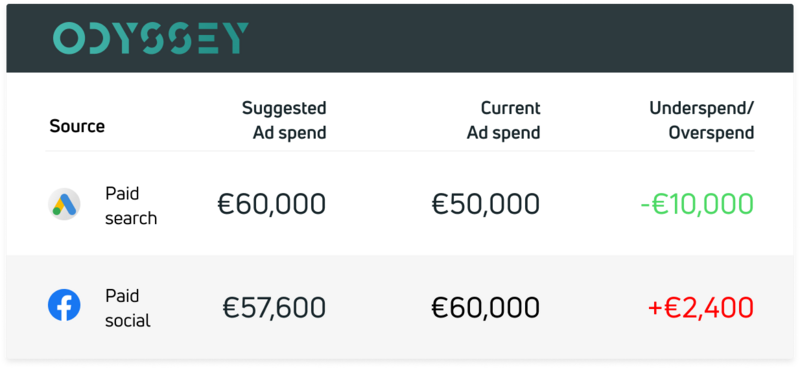How Odyssey uses Google Analytics as a tracking source
One of the biggest benefits of Odyssey Attribution is that we are able to extract the raw data from Google Analytics. How, you are asking? Let us explain
When I joined Havas Media in 2009, I was introduced to Havas’ attribution model called “Artemis”. I was really excited about it, but in the end I’ve never really seen it working for any client, mainly because clients thought that it was too complicated and therefore too expensive. Since then, 11 years have passed and based on all the conversations I’ve had with clients and other people from within the digital marketing industry, I believe that more than 90% of the advertisers are still using last click attribution to value their marketing efforts.
Every year, the pressure on marketers to change this is growing. Many of them have tried, but in the end almost nobody really succeeded. And that’s because the main problem with marketing attribution is that it is very complicated. Marketers on the other hand, like to simplify things. Not in the last place, because their managers want clear numbers that tell them if campaigns or other marketing efforts worked or not. Insights that are multi-interpretable and answers like “it depends” therefore won’t work in most companies.
Over the past few years “Artificial Intelligence (AI)” and “Machine Learning” have become the buzzwords that were going to solve every problem. Yeah, right! AI can be a great solution in many industries, including digital marketing, but the good old “garbage in, garbage out” saying is nowhere more true than in AI solutions. A simple analysis on the available information in customer journeys makes clear that AI is not the solution in marketing attribution or at least: “AI can’t do it all by itself”.
Imagine that you’re buying a pair of shoes online. You probably visit a webshop a few times before buying. This is information that can be analysed, but maybe you’ve used multiple devices, you’ve deleted cookies or you’ve used multiple browsers as well? You’ve probably visited websites of other shoe sellers too and maybe you’ve seen offline ads or even saw somebody walking with a pair of shoes that you really liked? What I’m trying to say here is that for every customer journey, the amount of available information that influenced someone’s purchase decision is incomplete, but the biggest problem is that you don’t know what percentage of all the information is available. For every customer journey this percentage can be different. For example: imagine that you’re an advertiser with a million different historical customer journeys. Each customer journey has a different percentage of incomplete information and you don’t know which percentage that is. I don’t see how AI can help you here to give you the right insights to improve the efficiency of your marketing spend. In fact, what marketers are doing here is overestimating machine power (AI) and underestimating their own brain.
So, let’s get back to our main question: Will 2020 finally be the year of marketing attribution?
I would say, it should be, but I sincerely doubt if it will be. As mentioned above, a big shift in marketers’ way of thinking needs to take place first. Marketers should accept that not everything can be made simple and that it sometimes depends on how you interpret the data (and even the insights!) in order to determine your marketing efforts’ success.
Above all, marketers should stop believing everything that Google says. In the end Google Analytics is exactly the same as asking a teenager to mark his own homework. Google Analytics doesn’t show you the data (as many marketers think), it shows you insights that Google has decided to show you. If there’s one company in the world that could give advertisers great attribution insights based on Google Analytics, Chrome, Android and all the other programs they have, it’s Google. Why do you think then, that Google doesn’t provide you these insights?
As long as Google’s market dominance remains as big as it is today, I doubt that marketing attribution will finally have its big breakthrough soon. Nevertheless, let’s keep on trying…
Happy 2020 everybody; hopefully, I’ll be proven wrong at the end of this year!
How Odyssey uses Google Analytics as a tracking source
One of the biggest benefits of Odyssey Attribution is that we are able to extract the raw data from Google Analytics. How, you are asking? Let us explain
What if we could re-start affiliate marketing?
The lack of a proper attribution model within the industry is actually more or less how we got to the first version of Odyssey. However, there are more topics in which I believe the affiliate industry is completely missing the point.
How to include costs and revenue in your attribution model?
It's important to see which marketing channels drive most of the value, but if these channels cost you a fortune, you don't want to spend all your marketing budget there. Therefore, including both costs and revenue in your MTA model is essential.


